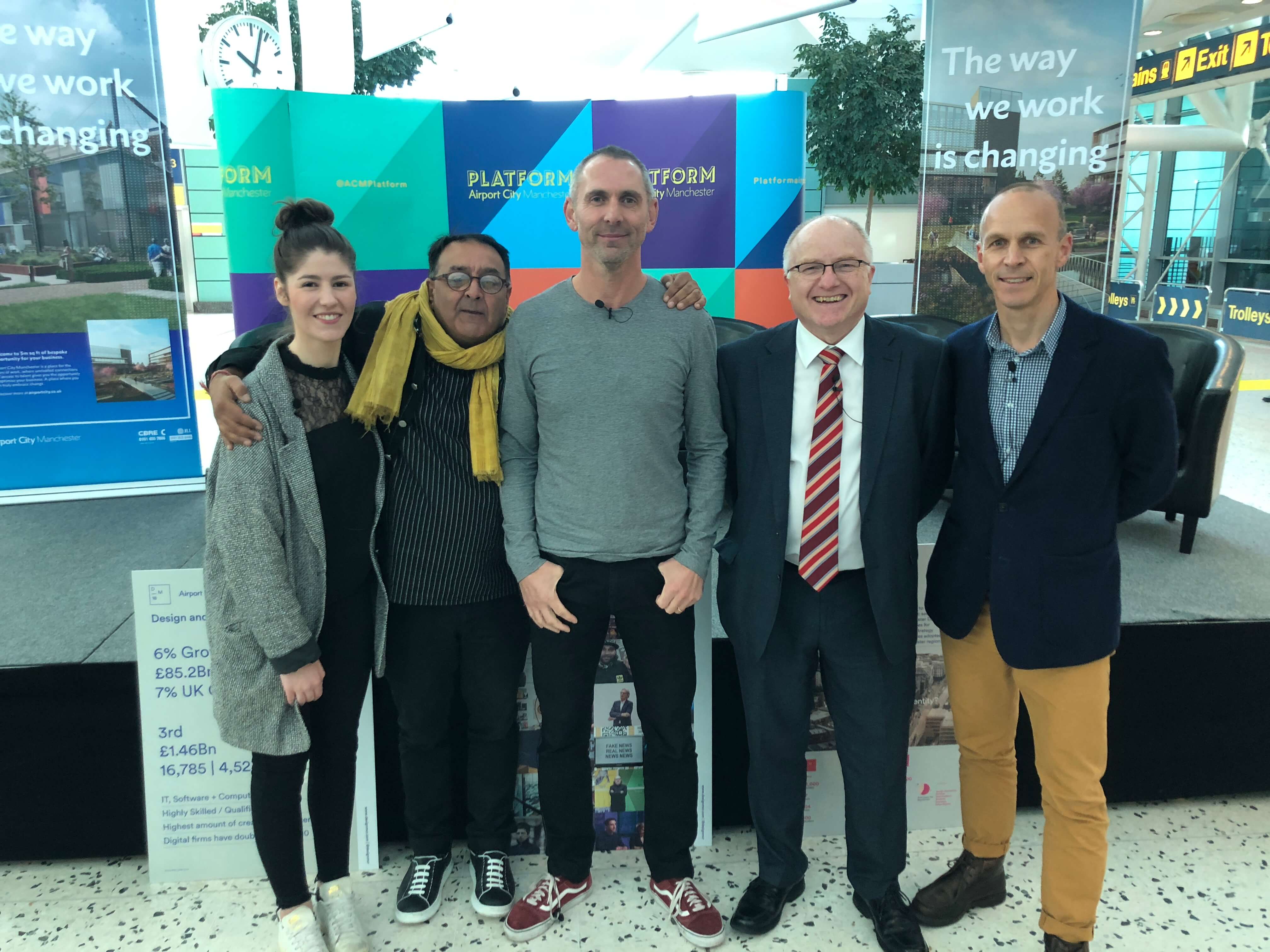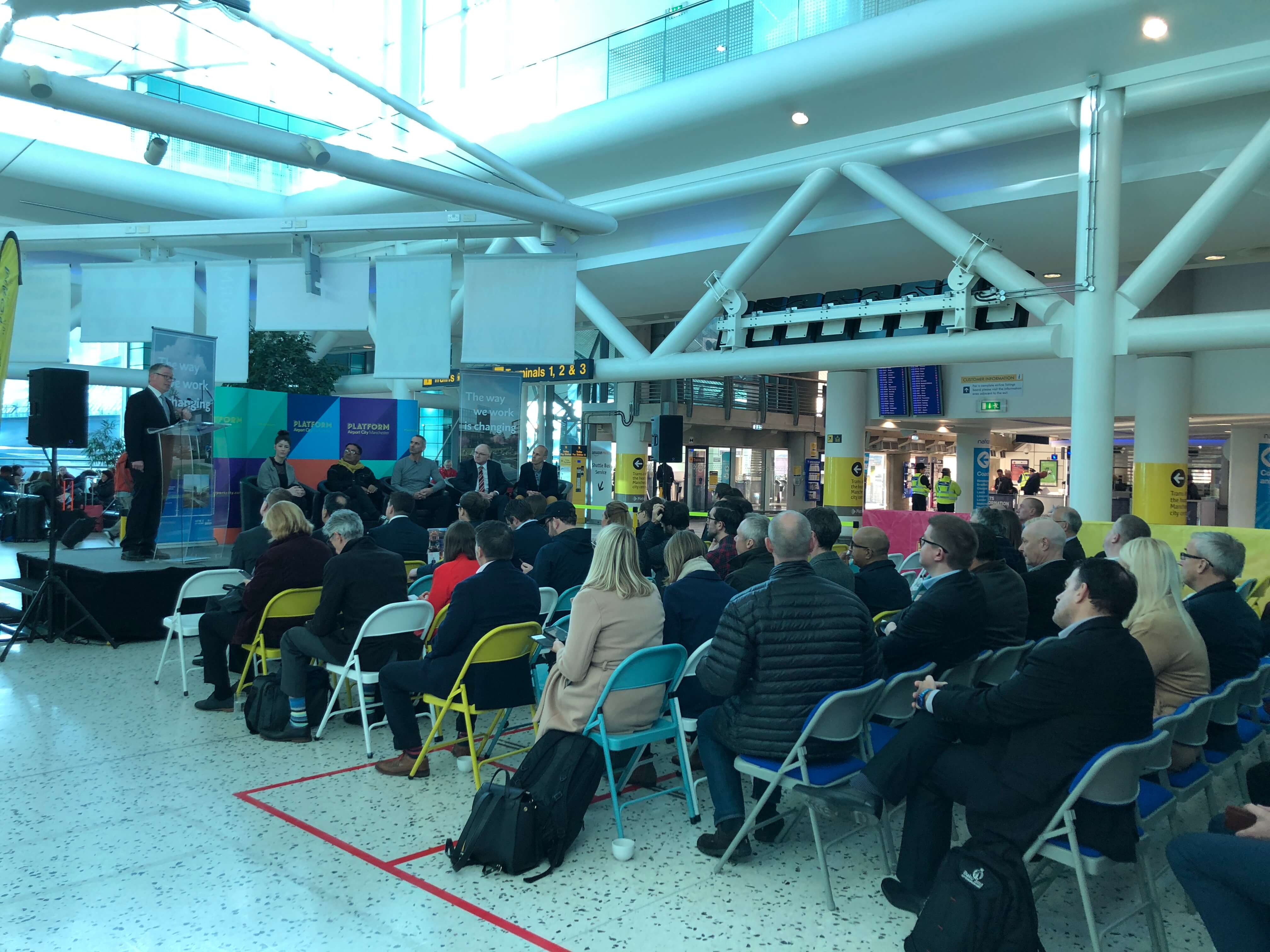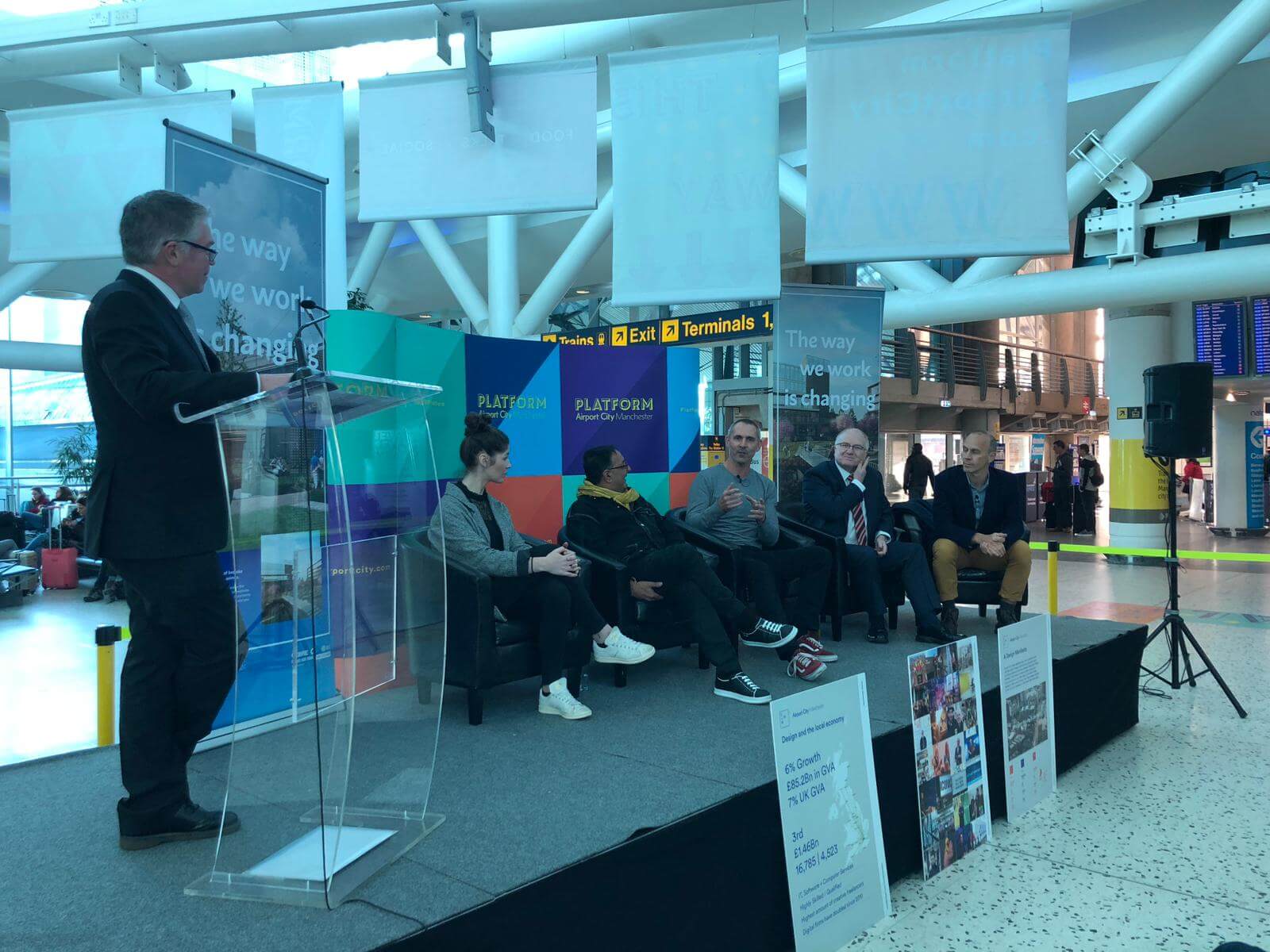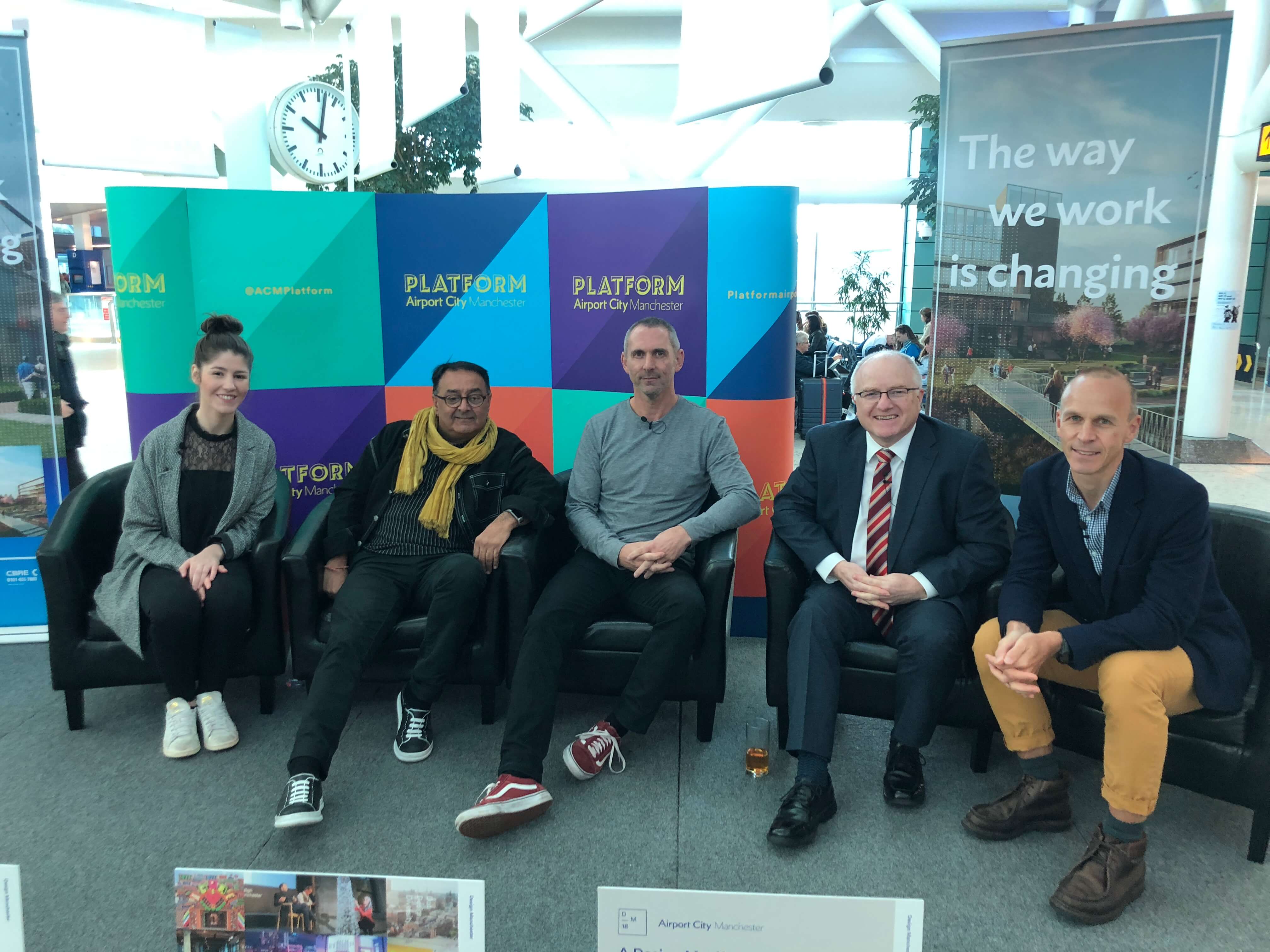Airport City Manchester host future of workspaces panel debate at M.E.N Business Breakfast
18/10/2018 by Airport City ManchesterArchitect Mike Hitchmough from BDP, Atul Bansal, co-founder of interior design group Sheila Bird, Gerry Brough, director of place at Bolton Council, Adam Higgins from developer Capital & Centric, and Fiona Doran, design researcher for Common Good all took part.

The challenges of our future workplaces were laid bare at a Manchester Evening News Business Breakfast event. The free panel discussion at Platform Airport City Manchester was well attended by representatives of the business community.
The audience heard from Manchester-based architect Mike Hitchmough from BDP, Atul Bansal, co-founder and partner of interior design group Sheila Bird, Gerry Brough, director of place at Bolton Council, Adam Higgins from developer Capital & Centric, and Fiona Doran, design researcher for Common Good.
The hour long debate look at how requirements have shifted from traditional priorities like location, size and price to the importance of community and brand. Setting the scene, commercial property writer and host of the event, David Thame, described “a really astonishing moment” for the Manchester office market.
“Not long ago, Manchester, Birmingham and Glasgow’s office markets were more or less the same size,” he said. “It is dramatically no longer the case. In the first nine months of this year, South Manchester business parks have transacted massively more office deal than Birmingham. In the third quarter the entire city of Glasgow transacted less floor space than Salford Quays. “Manchester’s office space is now enormous which produced enormous opportunities and challenges.”

Mike Hitchmough, who is working on the Airport City Manchester development, spoke of the ‘phenomenal’ speed workplaces were changing and how architects were designing them with the expectation of radical change in future use. Atul Bansal said workplaces were at the start of a revolution.
“The easiest way to describe it is by talking about phones,” he said. “Mobiles aren’t just about making a call, texting or sharing a thought any more. The same way that phones have developed into things that aren’t controlled by boundaries or about how big or small they are, workspaces are in the same process. Technology is a great enabler of that. "The era of the office block is probably going to disappear. We are at the very beginning of that revolution.”
Fiona Doran said workspaces were less about the physical space anymore, but how users interact with it and what can it offer, such as “community and a sense of engagement”.
Adam Higgins described a power shift from employer to employee. “When we were all working in factories, the power was with employers, that’s changed," he said. "If you are young and tech-orientated working from a basic office is very difficult. Someone leaving university doesn’t want to work in a boring old office. The power is now with the employee to some extent.”
Higgins used his own experience with his children to illustrate the move to flexible workspaces. “My kids all have a desk in their room but they don’t use them,” he said. “They sit on the bed. The same happens in modern workspaces. People just want to sit on the sofa or breakfast bar.” Bolton is driving forward a £1bn masterplan, which includes refurbishing its old buildings.

Gerry Brough said there was a ‘clear trend’ towards older buildings with redesigned interiors but also top class office space. “The office market is moving,” he said. “Logistic North is growing with high tech processing industries and these companies, like Amazon, want Grade A offices next to their facilities. There is a demand for Google-type buildings as well.”
Brough also talked about plans to re-use other spaces, including using empty units in shopping centres as offices. “This is a great example of flexibility of space,” he said.
Doran said despite a more open dialogue about wellness and wellbeing in terms of workspaces, only half of UK companies have a wellness strategy. “It’s about understanding what that means,” she said. “So instead of free gym membership of childcare, free lunches, healthy snacks in the fridge, companies need to look at how that place can offer a wellbeing aspect, that sense of community, mental support.”
David Thames asked the panel if trends for ‘break-out areas and brightly coloured furniture’ were substitutes for a real coworking workplace. Bansal said many of the clients he spoke to didn’t understand their workforce.
“This generation think TVs are just for putting Netflix on a bigger screen,” he said. “This is the on-demand generation. Their expectations are different. “As consumers we go to work to consume space. We demand a certain level of comfort when we go shopping, and that is now the same at work.”
Hitchmough said HUT group’s 1m sq ft campus at Airport City, put ‘community’ at the heart of the design.
He also acknowledged the rate of change as a major challenge.
“When HUT came here four years ago, they wanted 70,000 sq ft," he said. "They now need something which will be 1m sq feet. How does construction work alongside occupier when the ebbing and flowing of the occupier are much faster than the bricks and mortar real estate market.”
Wrapping up the interesting debate, David Thame said: “The modern workplace is heavily influenced by the power of the employee but they are producing two contradictory impulses. One is to be a part of the something all the time and the other is this fragmented workplace and I wonder where those contradictory impulses are going to take the workspace next.”
